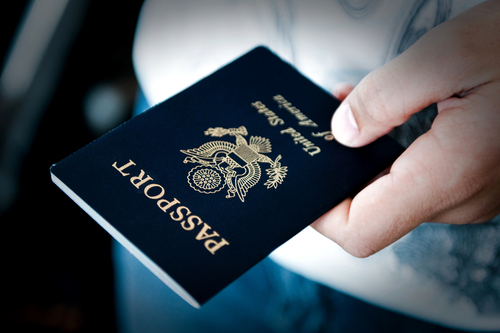A former U.S. Navy commander, who was recruited to work as a flight instructor in Saudi Arabia, said he was forced to sign an employment agreement after he arrived in that country. He also claims his passport was confiscated, he was assigned to poor living conditions, and he worked in an unsafe environment.
Boeing International Support Services (BISS), which is a wholly owned subsidiary of The Boeing Corporation, recruited “Matthew” for the job in Saudi Arabia.
The preliminary employment agreement that he signed did not contain a forum selection clause. However, in Saudi Arabia, he says he was forced to sign a second agreement, which required contractual disputes to be resolved in the labor courts of Saudi Arabia. Matthew maintains that he was not given time to read the agreement and was told that if he did not sign it, he must return to the United States at his own expense.
He alleged that his passport was confiscated; he was assigned to a housing compound with poor living conditions; and he worked in an environment characterized by safety and ethics violations.
With the help of the U.S. consulate in Jeddah, Matthew returned to the United States. When filing suit in district court, he said, among other things, that he did not have the money to travel to Saudi Arabia to pursue legal proceedings there; even if he were able to do so, he would be subjected to harsh conditions and internal travel restrictions; he would not be able to obtain a fair trial in Saudi Arabia; and he could be detained there by his employer for the duration of the legal proceedings.
The district court dismissed the lawsuit, saying the forum selection clause was enforceable. Matthew appealed to the U.S. Court of Appeals for the 9th Circuit.
The court reversed and remanded, saying the district court abused its discretion by dismissing the case without convening an evidentiary hearing and by denying Matthew an opportunity to amend his complaints.


The behaviour former U.S. Navy commander was subjected to in Saudi Arabia is nothing new, Saudi Arabia along with Qatar, Kuwait and UAE amongst other GCC countries have done such things for years. These countries have for many years allowed employers to force foreign employees into signing second agreements once they arrive, confiscate passports and assign foreign workers to housing compounds with poor living conditions.
I believe that Matthew should also take an action before a US Court against Boeing International Support Services (BISS), a wholly owned subsidiary of The Boeing Corporation that actually recruited “Matthew” for the job in Saudi Arabia based on the fact that they would and should have been aware of the conditions and subsequent second agreement he was going to be forced to sign a which required contractual disputes to be resolved in the labour courts of Saudi Arabia and failed to act in the upmost good faith when entering a contractual agreement by disclosing all pertinent information to the other party.
The Doctrine Of Utmost Good Faith also known as “uberrimae fidei” provides the minimum standard that requires both the buyer / employee and seller / employer in a transaction to act honestly toward each other and to not mislead or withhold critical information from one another. The doctrine of utmost good faith applies to many common financial and contractual transactions including employment contracts.
Mathew should pursue this matter and seek compensation to the maximum from Boeing being the organisation who recruited him in the United States.